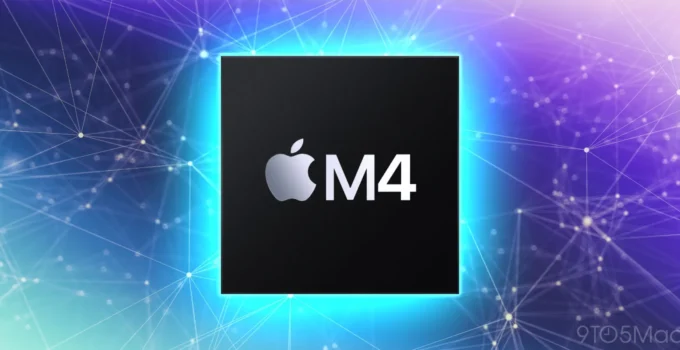Apple Set to Launch AI-Focused M4 Macs in Late 2024. The unveiling of Apple’s first AI-optimized Macs equipped with the new M4 chips is set to reshape the landscape of computing with a focus on artificial intelligence. Slated for late 2024, this update heralds a significant shift in Apple’s approach to hardware capabilities, particularly regarding AI applications.
iOS 18 to Revolutionize Safari with Smart Navigation
Mark Gurman of Bloomberg reports that Apple plans to revamp its entire Mac lineup to include the M4 chips, which are engineered to enhance AI-driven functionalities. This strategic move by Apple indicates a deeper commitment to integrating advanced AI technologies across its product range, aiming to boost performance in increasingly complex computing environments.
The expected release timeline suggests that the M4 chip series could debut around the same time as the previous M3 series, which was launched in October last year. This pattern hints at a possible annual update cycle for Apple’s Mac chips, pointing to a late 2024 or early 2025 rollout for the complete M4 lineup.
Apple’s phased introduction will see the iMac, low-end and high-end 14-inch MacBook Pro, 16-inch MacBook Pro, and Mac mini models among the first to receive the M4 updates. Following these, the higher-end 13 and 15-inch MacBook Air models are scheduled for a spring 2025 update, with the Mac Studio and Mac Pro to follow later in the year.
The M4 processors are reportedly in the final stages of production and will be available in at least three variants tailored to different performance needs: Donan, Brava, and Hidra. Each is designed to cater to specific segments of Apple’s product line, from entry-level to high-end professional devices, illustrating a tiered approach to hardware upgrades that ensures a wide range of consumers benefits from the latest technology.
The entry-level Donan chip is destined for the base models of the MacBook Pro, MacBook Air, and Mac mini, making advanced computing capabilities accessible at a lower price point. Meanwhile, the mid-range Brava chip will power more demanding systems such as the higher-end MacBook Pro and Mac mini models.
The Hidra chip, anticipated to be the most powerful of the trio, is specifically developed for the Mac Pro. This chip is expected to represent the pinnacle of Apple’s processor capabilities, possibly branded as “Ultra” or “Extreme,” underscoring its suitability for professional-grade tasks that require substantial computational power.
Additionally, the Mac Studio is under testing with an unreleased chip from the M3 series as well as a variant of the M4 Brava processor. This suggests that Apple is still exploring the best configurations to maximize performance for different user needs.
One of the standout features of the upcoming M4 chips is the potential support for up to 512GB of unified memory, a substantial increase from the current limit of 192GB. This enhancement would significantly expand the Macs’ ability to handle more complex tasks and larger datasets, particularly beneficial for professional users in fields such as video editing, 3D rendering, and software development.
The M4 chips will continue to utilize the 3-nanometer manufacturing process introduced with the M3 series. However, improvements in this technology by Apple’s supplier TSMC are expected to boost both performance and energy efficiency, reflecting Apple’s ongoing commitment to environmental sustainability alongside technological advancement.
In preparation for these advancements, Apple is also focusing on enhancing the neural engine within the M4 chips. A more robust neural engine with a higher core count is being designed to specifically bolster the Macs’ capabilities in handling AI tasks, ensuring that Apple’s hardware remains at the cutting edge of AI technology integration.
As the launch of the M4-equipped Macs approaches, the anticipation among tech enthusiasts and professional users continues to build. These updates promise to bring significant improvements in processing power, memory capabilities, and AI optimization, setting a new standard for what users can expect from Apple’s computing products.
In summary, Apple’s move to equip its next-generation Macs with M4 chips focused on artificial intelligence capabilities represents a major stride forward in the company’s hardware development. By enhancing AI functionalities, Apple not only aims to meet the current demands of its user base but also to anticipate future computing needs, ensuring its technology remains relevant and cutting-edge in a rapidly evolving digital landscape.
